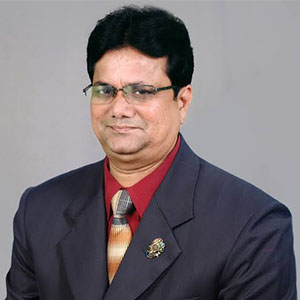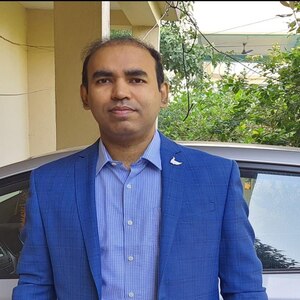Master In Business Administration (MBA)
- Introduction
- HOD’s Message
- Faculty Members
- Vision & Mission
- Courses Offered
- COs
- POs
- PEOs & PSOs
- Laboratory Facilities
- Opportunities
- Achievements
-
Seminar, Workshop,
Conference, FDP, STTP - Value Added Courses
- Student Project/Internship
Dear Fellow Guardian / Student: Today we live in an era that is an epitome of competition. The ever-changing and challenging economic, business, and technological environment has made things much more complex and competitive. Business schools that are entrusted to prepare their students face similar challenges. Students when they graduate from the b-schools are facing stiff challenges and ever-increasing performance expectations from the workplace.
Obviously, the need of the hour is to inculcate the necessary changes in teaching and training methods to prepare the students industry-ready. We at the Einstein Business school with excellent infrastructure, industry experienced faculties, exposure to industry experts, able training &placement cell, are committed to imparting quality education and training to future managers. Being part of Einstein Academy of Technology and Management a NAAC B++ accredited college, we have always strived for quality. We are certainly able enough to transform our students into quality human resources.
Professor Sanat Rout
Programme Outcomes (POs)
PO1: Engineering knowledge: Apply the knowledge of mathematics, science, engineering fundamentals, and an engineering specialization to the solution of complex engineering problems.
PO2: Problem analysis: Identify, formulate, review research literature, and analyze complex engineering problems reaching substantiated conclusions using first principles of mathematics, natural sciences, and engineering sciences
PO3: Design/development of solutions: Design solutions for complex engineering problems and design system components or processes that meet the specified needs with appropriate consideration for the public health and safety, and the cultural, societal, and environmental considerations.
PO4: Conduct investigations of complex problems: Use research-based knowledge and research methods including design of experiments, analysis and interpretation of data, and synthesis of the information to provide valid conclusions.
PO5: Modern tool usage: Create, select, and apply appropriate techniques, resources, and modern engineering and IT tools including prediction and modeling to complex engineering activities with an understanding of the limitations.
PO6: The engineer and society: Apply reasoning informed by the contextual knowledge to assess societal, health, safety, legal and cultural issues and the consequent responsibilities relevant to the professional engineering practice.
PO7: Environment and sustainability: Understand the impact of the professional engineering solutions in societal and environmental contexts, and demonstrate the knowledge of, and need for sustainable development.
PO8: Ethics: Apply ethical principles and commit to professional ethics and responsibilities and norms of the engineering practice.
PO9: Individual and team work: Function effectively as an individual, and as a member or leader in diverse teams, and in multidisciplinary settings.
PO10: Communication: Communicate effectively on complex engineering activities with the engineering community and with society at large, such as, being able to comprehend and write effective reports and design documentation, make effective presentations, and give and receive clear instructions.
PO11: Project management and finance: Demonstrate knowledge and understanding of the engineering and management principles and apply these to one’s own work, as a member and leader in a team, to manage projects and in multidisciplinary environments.
PO12: Life-long learning: Recognize the need for, and have the preparation and ability to engage in independent and life-long learning in the broadest context of technological change.
Programme Outcomes (POs):
1. To develop the analytical ability to solve organizational problems
2. To develop and enhance a student’s holistic business acumen for managing complex business scenarios.
3. To enable the students to develop various competent management practices with robust ethical values across a cross section of areas such as Economics, Finance, Marketing, HR, IT and Operations.
4. To develop management capabilities, product and service management skills, entrepreneurship and analytical inclination.
5. To enable students to inculcate etiquettes, leadership, team building, problem solving competencies in a multi-disciplinary environment
6. To develop knowledge, skills and attitudes required to meet the demands of dynamic employment opportunities.
Program Educational Objectives (PEOs)
PEO1: To cultivate competence in the management profession, empowering students to leverage creative, innovative, and entrepreneurial potentials while utilizing management tools effectively for success in the corporate world.
PEO2: To foster adaptability in students, enabling them to swiftly learn and apply new skills in a rapidly evolving environment, while instilling a sense of responsibility and commitment to personal, organizational, societal, and national development.
PEO3: To develop strong interactive communication, multidisciplinary teamwork, and leadership skills in students, empowering them to fulfill their professional responsibilities effectively and contribute positively to their respective fields and communities.






